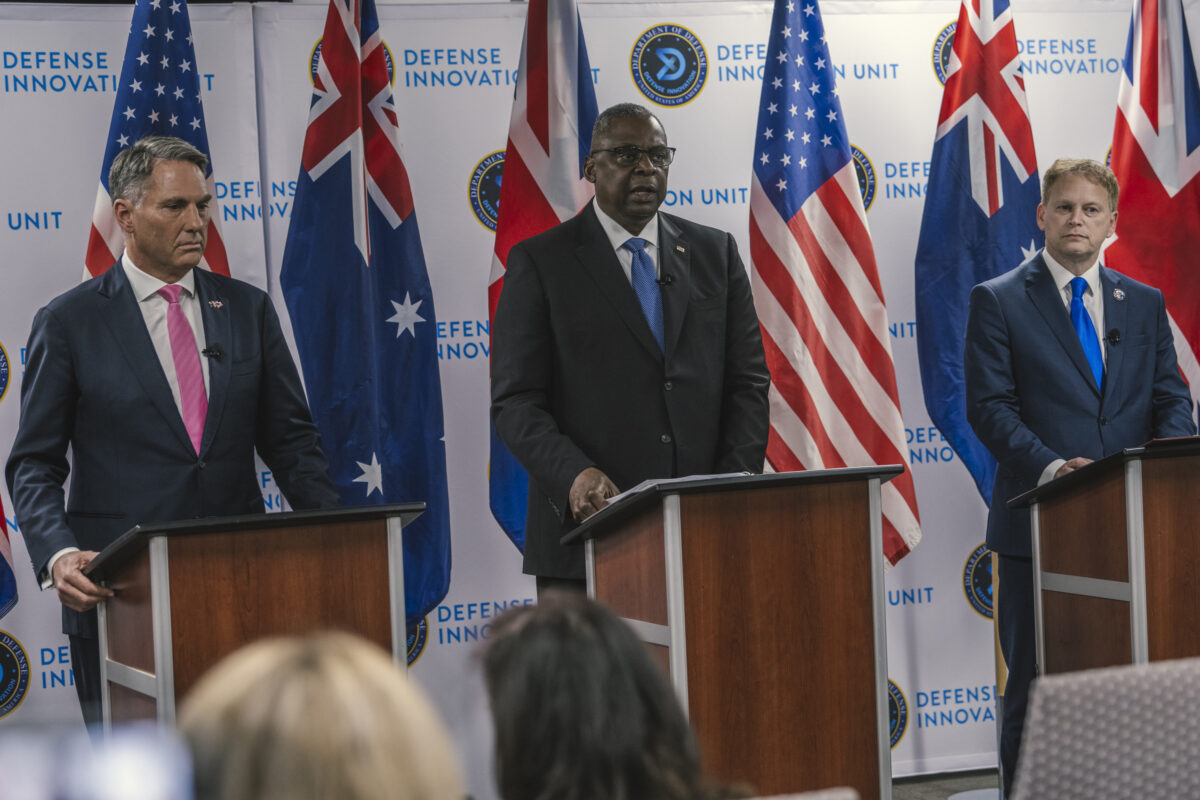US, UK, Australia Defense Chiefs Tout Deep Space Radar, AI in Joint Deal

Top defense officials from the United States,
Australia, and Britain convened in Silicon Valley, California, to
advance their collaborative efforts in high-tech domains such as deep
space radar, artificial intelligence (AI), and quantum computing
systems. The meeting, held on Friday, aimed to strengthen the trilateral
partnership known as AUKUS (Australia, United Kingdom, United States),
established in September 2021 to counterbalance the influence of
assertive regimes like those in Moscow and Beijing.
The focus of
the gathering was on fostering cutting-edge capabilities for their armed
forces in response to evolving global threats. US Secretary of Defense
Lloyd Austin emphasized the significance of AUKUS, characterizing it as a
"once in a generation opportunity" to enhance peace and security in the
Indo-Pacific region.
The collaborative agreements among the
three nations involve the development and delivery of advanced
technologies to provide a decisive advantage for their military forces.
Notable aspects include the acquisition of at least three
nuclear-powered Virginia-class submarines by Australia, and the joint
construction of a new submarine model incorporating US technology by
Britain and Australia.
During the recent meeting, the officials
highlighted the "Deep Space Advanced Radar Capability" program, a
collaborative effort to establish radar detection sites in all three
countries by the end of the decade, capable of peering 22,000 miles into
space. The discussions also encompassed cooperation on quantum
technologies for navigation and weapons direction, as well as the
development of resilient artificial intelligence for precision
targeting.
Australian Defense Minister Richard Marles emphasized
the historic importance of the meeting in the context of AUKUS,
highlighting the sharing and development of advanced technologies. The
discussions reflected a commitment to innovation, particularly in
response to an increasingly perilous global landscape marked by
conflicts in Ukraine, the Middle East, and China actions in the
Indo-Pacific.
Addressing concerns about the stability of
alliances amid potential political changes, Marles asserted that AUKUS
enjoyed cross-party support in all three nations. British Defense
Secretary Grant Shapps underscored the urgency of innovation in a more
dangerous world, citing challenges posed by Russia, Hamas, and China.
While
the strengthening alliance is rooted in longstanding partnerships, it
has raised apprehensions in Beijing, which perceives attempts to contain
its influence. The three nations, committed to "freedom of navigation"
voyages in the South China Sea, have faced criticism from China, warning
against what it sees as a dangerous path. The collaboration includes
the acquisition of nuclear-powered submarines by Australia, replacing
its aging fleet, with capabilities for extended underwater operations
and reduced noise levels.


